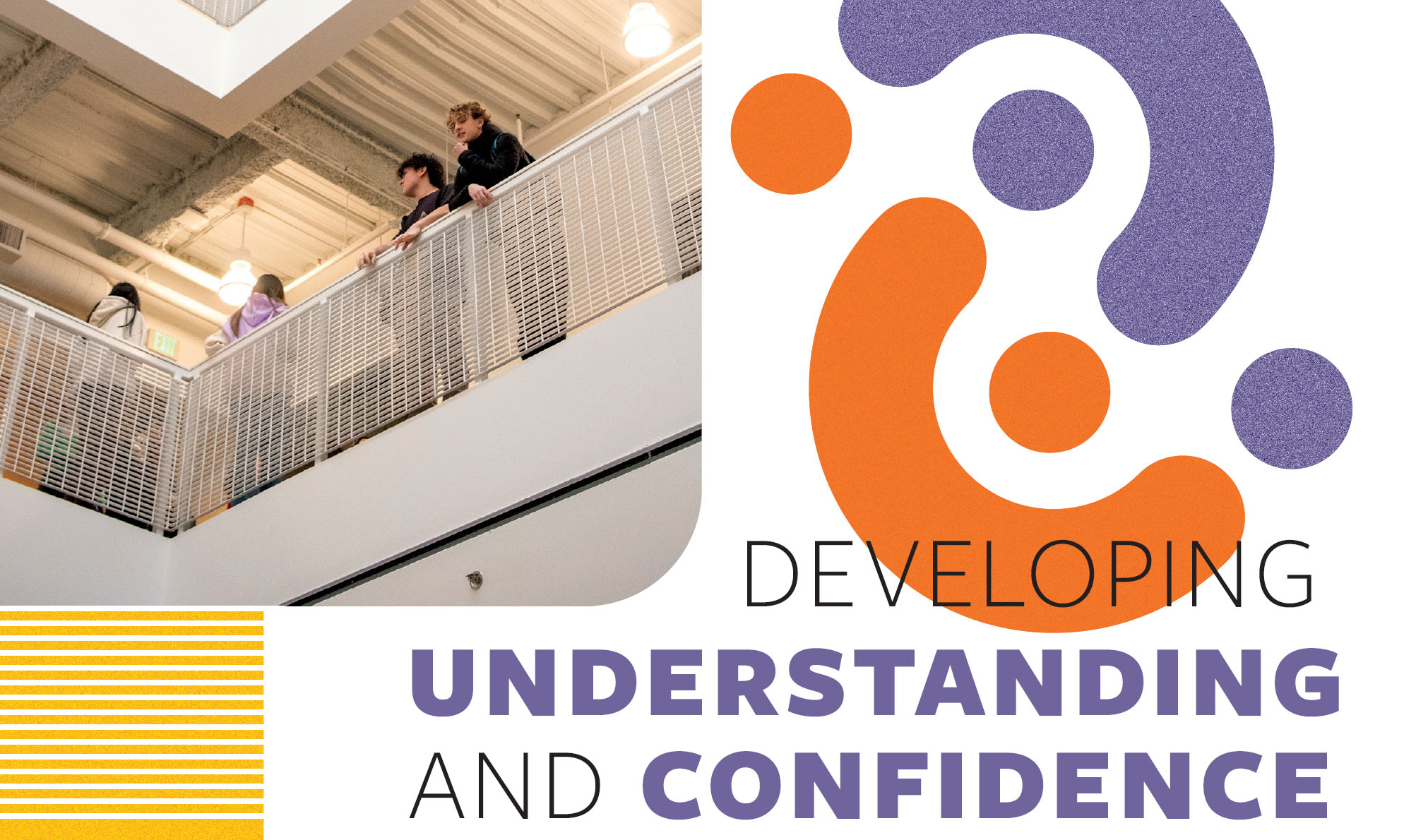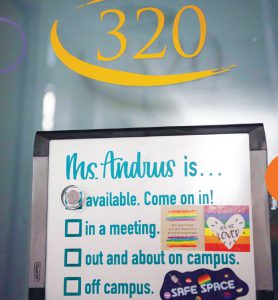
By Jamie Andrus, Assistant Director of Student Well-Being
It is not uncommon for teachers to be drawn to the field of education because their own school experiences were difficult for one reason or another. Learning came easily for me, but going to school was another story altogether. I loved reading, language, and learning about other places and times, but didn’t feel a connection with most of my peers and teachers. The best learning involves making mistakes, and it was challenging for me to take risks in front of others unless I was sure I was valued, supported, and understood. Invariably, my report cards said I was a pleasure to have in class but should work on participating more, a phrase well-known to introverted, quiet, or disengaged students throughout time. The issue with this type of feedback is that it frames a lack of engagement as a problem only with the individual rather than examining how the community might change to increase a sense of belonging among its members.
At Eastside Prep, we know that inclusion goes beyond accepting differences to celebrating them, and our Learning Support and Counseling teams are dedicated to ensuring that all types of thinking and learning are valued and understood. Only when students feel they belong can they authentically engage in the classroom and community. The goal of our Learning Support and Counseling programs is to engage with all students in ways that help them develop self-understanding and self-confidence so that, in turn, students feel comfortable engaging with the school community.
 If you spend any time with Learning Support, you are bound to hear the following phrases. “Learner variability is the norm.” “Everyone has a learning profile.” “We all have areas of strength and challenge.” All of these statements essentially mean the same thing, that Learning Support is for everyone. In addition to being validated by cognitive science, this approach means that we avoid categorizing students as neurodivergent and neurotypical. Students with and without diagnosed learning differences may struggle with the same tasks, even if the degree of struggle differs. This approach also acknowledges that the vast majority of students will experience struggle at some point during their academic careers. Through visits to assemblies, advisories, and classes such as Biology, Literary Thinking 2, and ninth-grade Wellness, we work to engage all students in reflecting on what learning strategies work best for them and where they might need suggestions or support. Developing and practicing metacognition is a critical step
If you spend any time with Learning Support, you are bound to hear the following phrases. “Learner variability is the norm.” “Everyone has a learning profile.” “We all have areas of strength and challenge.” All of these statements essentially mean the same thing, that Learning Support is for everyone. In addition to being validated by cognitive science, this approach means that we avoid categorizing students as neurodivergent and neurotypical. Students with and without diagnosed learning differences may struggle with the same tasks, even if the degree of struggle differs. This approach also acknowledges that the vast majority of students will experience struggle at some point during their academic careers. Through visits to assemblies, advisories, and classes such as Biology, Literary Thinking 2, and ninth-grade Wellness, we work to engage all students in reflecting on what learning strategies work best for them and where they might need suggestions or support. Developing and practicing metacognition is a critical step
in becoming a self-regulated learner, and perhaps even more important, it helps students to understand and appreciate their identities
as learners.
Another driving factor in our approach to supporting students at EPS is the knowledge that all students will need assistance of some kind at some time. For many students who experience academic challenges at school, the solution isn’t lessons on time management systems or additional practice with a tutor. Instead, they need support coping with the roller coaster ride that is adolescent development. This is where our Counseling program steps in. Teens and preteens experience notoriously intense emotions.
It’s easy for adults to scoff when a teen says, “This is the worst day of my life,” but development experts tell us that this is a reality for students in the midst of a fight with friends, a breakup, or a stressful situation at home. It’s challenging for anyone in such a high emotional state to focus, learn, and perform, let alone individuals who don’t have fully formed prefrontal cortexes. In addition to working with students individually, our counselors also make frequent presentations in classes and develop social-emotional learning lessons for advisories. The counselors also advise learning support specialists in cases where a mental health concern may impact a student’s performance at school and require formal learning accommodations.
The basic psychological processes are considered to be perception, learning, language, thought, attention, memory, motivation, and emotion. All of these processes take place in the same brain at the same time and greatly influence one another. Stress, trauma, and anxiety can have as significant an impact on learning as learning differences or ADHD, and it is very common for those with diagnosed learning differences to experience stress and anxiety. Because of this, our Learning Support and Counseling teams have always collaborated frequently, so it only made sense to formally join the programs together under the umbrella of Student Well-Being. I’m thrilled to lead a team of individuals so dedicated to all forms of student success as the Assistant Director of Student Well-Being this year, and I look forward to working with students, families, and faculty as we work to understand, acknowledge, and celebrate all learners. With Counseling and Learning Support working together, we are better able to discover and address barriers to learning that our students may experience.
When students feel secure that they will still be valued when they make mistakes, they take greater risks and are more motivated to engage not only in the classroom but also in sports, academic teams, and the arts. Our students observe and learn from our behavior constantly. When we show our students that we respect and appreciate them for who they are, flaws and all, they learn to show respect and compassion to others. When we model compassion for our challenges and confidence in our strengths, we demonstrate self-acceptance. In Rising Strong, Brené Brown addresses the relationship between self-acceptance and belonging, writing, “Because true belonging only happens when we present our authentic, imperfect selves to the world, our sense of belonging can never be greater than our level of self-acceptance.” As stated in the Strategic Priorities, EPS is committed to focusing on well-being over the next five years. Guiding students toward taking pride in their gifts, acknowledging and understanding their limitations, and knowing when and how far to push themselves is a step that will lead to an enhanced sense of self-acceptance, belonging, engagement, and, ultimately, well-being.

